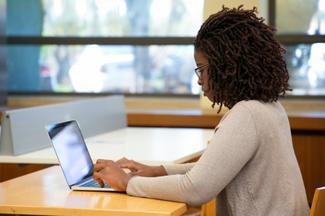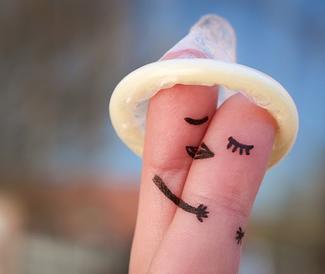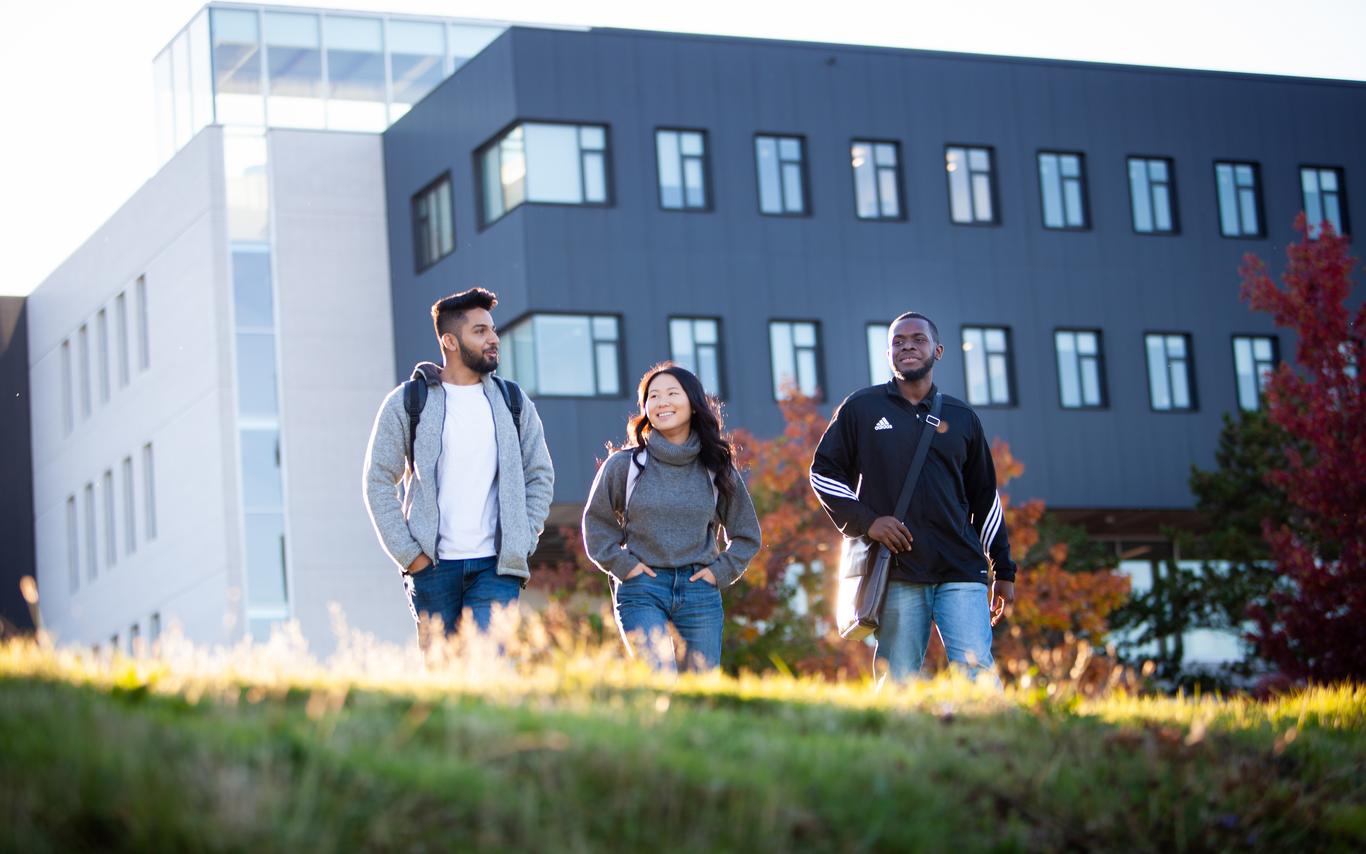Living through a global pandemic is not easy! We have all felt the impacts of COVID-19, and as students, you are continuing to feel the impacts of the pandemic in multiple ways.
There are a number of great resources out there to support your emotional, mental, social, financial, and academic needs during this time. Check out VIU COVID Updates and Information and VIU’s Counselling COVID Resource page.
Here are few other resources to help you stay well during COVID, on topics that you might be wondering about.
Even before the COVID-19 pandemic, technology was an integral part of our lives. However, since the start of COVID-19, we have all been thrust into an even more all-encompassing digital world. Work, school, friends, dating, are now all (at least in part) happening online! As we adapt to this digital world, there are some important steps that you can take that can help maintain your well-being.

Simon Fraser University has developed this great Guide for Digital Flourishing (check it out!). Here is a quick list of tips from this guide:
Physical Health
- Be conscious of your eye health
- Follow the “20-20-20 rule: For every 20 minutes you spend looking at a screen, focus on something 20 feet away for 20 seconds.”
- “Position your screen so it is perpendicular to windows or other bright sources of light.”
- Set timers to help you remember to take breaks.
- Pay attention to your body posture at your computer or while on your device, good ergonomics can make a big difference!
- "Check in with how your body feels and notice any cues of discomfort or tiredness. There may be adjustments or a break needed."
Productivity
- “Set up special break times to check social media.”
- “Identify a tech-free time/hour at least once per day.”
- “Set up a specific spot for studying, if possible. If desk space is limited, consider changing the direction your chair faces when studying versus when you are eating or socializing.”
- “Create and use a daily checklist of tasks to introduce some structure to your day and celebrate accomplishments, big or small.”
Contribution & Citizenship
- “Contribute to creating an inclusive online space by reflecting and reviewing your comments before posting to check that it is appropriate and respectful.”
- “Your comments may be public and permanently online – consider whether the information shared is how you would like to represent yourself in person and online.”
- “Double check the source of information before sharing it with others.”
Social Connections
- Make sure to connect with online communities that make you feel good, unsubscribe or disconnect from online communities that do not support you or your well-being.
- Use technology to reach out and remain connect with the important people in your life.
- Explore new online communities that help “enhance your quality of life”, check out VIU’s Talk to Me program or VIU’s campus events page for lots of opportunities to digitally connect with great VIU communities online.
Mental Health & Overall Well-Being
- Practice mindfulness while using technology and be aware of how you feel while using it.
- “If you are spending time on social media, consider looking up #kindness or #inspired on social media to check out what others find kind and inspiring”
- It can be good to take breaks from technology as well.
- "Practice gratitude: write down 3 instances you experienced or saw a kind act and 3 instances you have showed kindness to someone else."
- "Reflect inward: Pick up a pen and paper and do a 5-minute free write by journaling. Some virtual experiences may energize you and some may feel draining. Consider journaling about your experience after interacting online to check in with how you’re feeling."
Dating, romantic relationships, and sex are normal and vital parts of human life. But how do we do these safely during COVID-19? Below are a few quick tips and a couple of resources to help you stay safe and reduce risk when dating and having sex during this pandemic.

Tips for safe dating and sex during COVID-19
- Do it Online!
- Video dates, phone chats, sexting, “sexy zoom parties”, online chat rooms and group cam rooms are ways to engage in sexual activity with no chance of spreading COVID-19.
- But be aware of the risks of sharing information or photos online, and web camming. Some people do not share personal information or show their face or other identifiable body parts, for more privacy.
- Outdoor Dates
- When dating in person wear a mask, keep social distance, and try to engage in outdoor dates as much as possible (for example go on a picnic, or a hike, instead of going to a restaurant or bar).
- Sex for One
- You are your safest sex partner – masturbation will not spread COVID-19.
- Limit Contact
- You should limit close contact – including sex- with anyone outside your household.
- If you do have sex with others outside of your household, have as few partners as possible and pick partners you trust.
- COVID Consent
- Talk about COVID-19 risk factors, just as you would discuss contraception, condoms, and other safer sex topics. Ask them about COVID-19 before you hook up.
- Talking about you and your partner’s health and lifestyle habits including history of COVID-19 symptoms, history of contact with those who have symptoms or who have traveled recently, asking how big is their social circle, etc.
- Take Care During Sex
- Kissing can easily pass the virus. Avoid kissing anyone who is not part of your small circle of close contacts.
- Wear a face covering or mask. Maybe it’s your thing, maybe it’s not, but during COVID-19 wearing a face covering that covers your nose and mouth is a good way to add a layer of protection during sex.
- Make it a little kinky!
- Be creative with sexual positions and physical barriers, like walls, that allow sexual contact while preventing close face to face contact.
- Masturbate together. Use physical distance and face coverings to reduce the risk.
- Condoms and dental dams can reduce contact with saliva, semen or feces during oral or anal sex.
- Washing up before and after sex is more important than ever.
- Wash hands with soap and water for at least 20 seconds.
- Wash sex toys with soap and warm water.
- Disinfect keyboards and touch screens that you share with others
Resources for more information
- NYC Health Department: Safer Sex and COVID-19
- BC Centre for Disease Control: COVID-19 and Sex
- Setting Healthy Online Boundaries
- Sexual and Reproductive Health
Information gained and adapted from NYC Health Department: Safer Sex and COVID-19 and BC Centre for Disease Control: COVID-19 and Sex
For many people, their consumption of alcohol and other substances has gone up during the COVID-19 pandemic. One study completed in May found that boredom and stress are main factors in the increase in alcohol consumption. Here are a few resources to help increase awareness around some of the risks associated with substance use and COVID-19, and also some tips on how to use substances safely during this time.

COVID-19 can increase social and emotional factors that contribute to increase substance use. Feeling isolated, feeling anxious or stressed, and having a lack of structure and routine can all contribute to increased substance use. Here are some quick tips on how to cope:
- Stay Active and keep busy
- Stay connected even while physical distancing
- Find balance between staying informed and taking breaks from news
- Be kind to yourself
- Take care of your body, including eating and sleeping well
- Reach out for help
Check out this info sheet for more tips.
Excessive substance use can weaken our immune systems, and therefore it may make you more susceptible to COVID-19 and other illnesses.
Steps to reduce risk
- Don’t share joints, vaping devices, pipes or bongs
- COVID-19 spreads through respiratory droplets which will be on all smoking devices
- Wash your hands before putting any bottles, cans, cigarettes or cannabis products to your mouth
- You want to keep any contamination away from your mouth
- If you plan to smoke or vape cannabis, know that it can negatively affect your lung health
- Try to limit cannabis smoking or vaping to once a week, if possible.
- Avoid smoking or vaping cannabis if you feel sick.
- Avoid taking deep inhalations and try not to hold your breath.
- Use products that contain no more than 100 mg/g (10%) THC content.
- Follow Canada’s Lower-Risk Cannabis Use Guidelines to reduce your risk of experiencing harms when using cannabis.
- Alcohol, cannabis and other substances can interact with your prescribed medications and negatively impact your health
- Talk to your health provider about your use and how it may interact with medications
- If you are using cannabis for medical reasons, talk to your healthcare provider about your use during the COVID-19 pandemic.
This content was taken from Canadian Centre for Substance and Addiction
